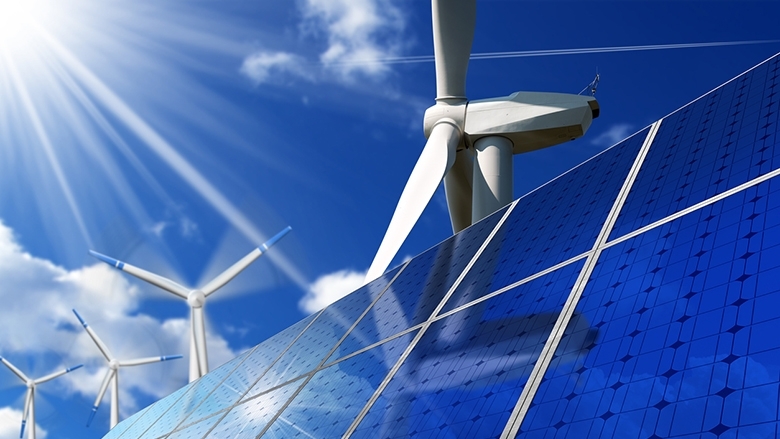WBG leveraging private sector financing for climate action
Challenge
Less than 2 percent of the country’s electricity comes from renewable energy. Sixty percent of electricity is generated from fossil fuels. Argentina’s government is moving swiftly to change that. It declared 2017 the year of renewable energy and the Ministry of Energy launched an innovative renewable energy bidding program called RenovAr. Its target: to produce 20 percent of Argentina’s electricity from renewable sources by 2025, with intermediate targets of 8 percent by 2018 and 16 percent by 2021. A new legal framework for renewable energy was passed in 2015 that put into place these targets, created FODER (the government Renewable Energy Fund), and established fiscal incentives and competitive and transparent market rules to attract international investors. At the same time, financiers expressed cautious interest in undertaking renewable energy projects given Argentina´s track record.
Approach
The IFC and the World Bank worked together to help build a bridge between the government and the private sector—a bridge that led to new investment in a critical sector. The IFC developed documentation to help set up the auction to ensure projects were bankable and met international standards. The IFC also identified two bidders who were granted a project each, and in December 2017 provided a long-term credit to one of them. To reassure private investors, IBRD structured a $480 million guarantee in support of the government’s Renewable Energy Fund (FODER) that reduces financial risks for investors and helps create a new market for private investment in renewable energy in Argentina. Together these tools are helping Argentina meet its renewable-energy goals while leveraging private capital and avoiding public debt.
The IBRD guarantee, along with IFC financing, represents a transformative opportunity to link Argentina´s renewable energy potential to private investments, promote competitive electricity prices and create innovative financial schemes that could be replicated and scaled-up to other regions and sectors. It creates a new market by leveraging private investment, which is particularly important for Argentina at a time when international investors are interested in returning to the country.
Results
- Ultimately, more than 2,400 megawatts were awarded. The Government awarded contracts for 59 projects to generate 2,423 megawatts. The Bank guarantee covers 27 of those tenders, including 12 wind projects (721 MW), 10 solar projects (306 MW), four small-scale hydro projects (4 MW) and one biogas project (1 MW).
- As these projects come to a close, they are expected to usher in US$3.2 billion in financing over the next two years, which represents about 6.7 times the amount of the IBRD guarantee.
- The RenovAr Program is expected to reduce Greenhouse Gas GHG emissions by a total of 79.64 million tCO2 over 20 years or 4 million tCO2 per year, which corresponds to approximately one percent of the GHG emissions generated by Argentina in 2015 and about four percent of the National Determined Contribution (NDC) target (109 million tCO2e per year) by 2030.
- The implementation of these renewable energy projects will go a long way to help Argentina reach its NDC goal of reducing GHG emission to 37 percent by 2030.
- Ultimately, the program will contribute several environmental co-benefits such as reduced air-pollution by reducing fossil fuel burning and a safer and more secure energy supply through technological innovation.
Bank Group Contribution
The IBRD guarantee backstops the Argentina Renewable Energy Fund’s obligation to pay a pre-determined price to eligible renewable energy investors when they have the right to sell the project to FODER if specific macroeconomic, sector or other government-related risks materialize. The size of the IBRD guarantee is US$480 million.
Partners
The World Bank (IBRD) and IFC worked together closely on this project to attract private investment and maximize the financing available through the combination of an IBRD guarantee and IFC financing and technical assistance. The World Bank Group (WBG) supported the government of Argentina to design the RenovAr program, based on estimated needs and financing available, and to develop standardized legal documents for RenovAr auctions. The IBRD and IFC teams provided advice to the government based on international experience, with a focus on ensuring a fair and balanced project risk allocation between the private and public sector.
Moving Forward
The IBRD is currently preparing a second guarantee of up to US$250 million under Round 2 of the RenovAr program. This additional guarantee not only builds on the success of the first guarantee, but it also responds to the government´s increased focus on leveraging public finance to attract more private investment through Public Private Partnerships.
Beneficiaries
Private developers, equity providers, and lenders repeatedly stated that the World Bank’s involvement was important for them to consider entering the Argentine market. The Project is facilitating the reentry of Argentina into international finance markets, thus helping to rebuild its track record with industrial and financial investors.
“For every 1,000 megawatts in renewable energy, the country saves US$300 million annually in liquid fuel,” said Sebastian Kind, Argentina’s undersecretary for renewable energy. “It reduces carbon emissions by two million tons.” That’s roughly equivalent to taking one million cars off the road, he added.
Learn More:
Multimedia:
